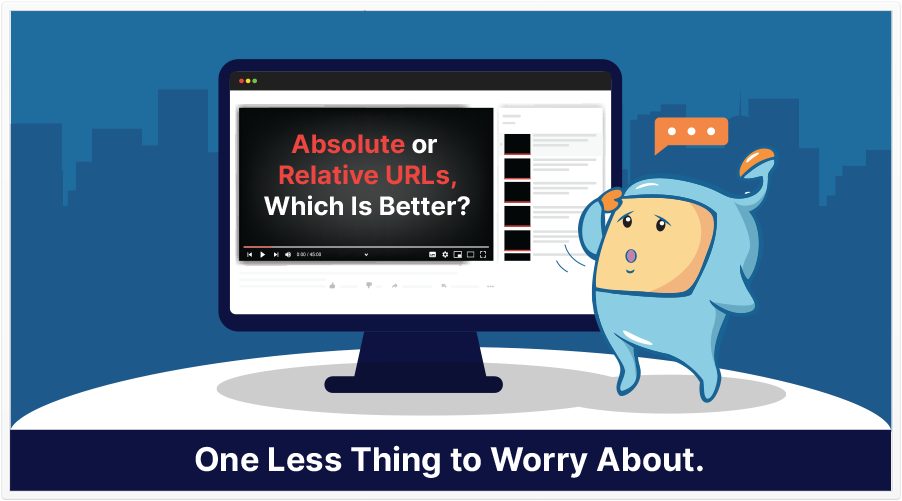
Yesterday (October 12th, 2021), Google published a short, 1-minute, 35-second video to it’s #AskGooglebot series of short videos. This video is on the Google Search Central YouTube channel.
The title of this video is Absolute or Relative URLs, Which Is Better? It featured Search Advocate John Mueller, who answered the question that makes up the title of the video.
The question was asked within the context of a certain situation: a site was being moved from Drupal to WordPress, and the internal URLs would change from relative to absolute.
The person who asked the question wanted to know if this would affect their site’s ranking (which, I understand, is not the same question as the one in the title, but the answer still applies).
I’ll give you a couple of similes.
Absolute URLs are Like Complete Mailing Addresses
Usually on a laptop, when you see a URL or web address, it’s usually a full web address–one that includes the http(s)://
Relative URLs are Like Partial Mailing Addresses
You might be wondering why you’d ever use a partial address, but remember, it’s relative to the location you’re in.
So, if you and I share the same apartment building, and I wanted to tell you which apartment was mine, I wouldn’t have to give you my full mailing address–instead, I’d just have to tell you my apartment number.
Likewise, a relative URL isn’t a full URL. It may just look like this: /privacy.html
No Difference
Part of John’s response was:
“…for search, it doesn’t matter at all which one of these you use; Google treats both of these exactly the same.
“You can also use both kinds of URLs within the same website–there is absolutely no relative difference between them…”
So, there’s your answer. If you’re encountered by this situation, there’s not much to worry about.